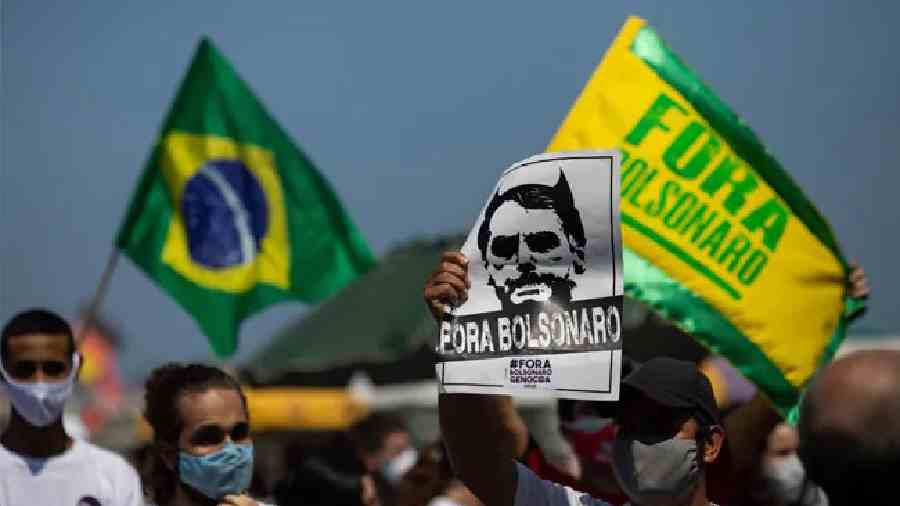“No amnesty! No amnesty! No amnesty!” The chant reverberated off the walls of the jam-packed hall at the University of Sao Paulo’s law college on Monday afternoon.
Hours later, it was the rallying cry for thousands of Brazilians who streamed into the streets of Rio de Janeiro and Sao Paulo, penned on protest posters and banners. The words are a demand for retribution against supporters of former President Jair Bolsonaro who stormed Brazil’s capital on Sunday, and those who enabled the rampage.
“These people need to be punished, the people who ordered it need to be punished, those who gave money for it need to be punished,” Bety Amin, a 61-year-old therapist, said on Sao Paulo’s main boulevard. The word “DEMOCRACY” stretched across the back of her shirt.
“They don’t represent Brazil. We represent Brazil.”
The protesters’ push for accountability evokes memories of an amnesty law that for decades has protected military members accused of abuse and murder during the country’s 1964-85 dictatorship.
A 2014 truth commission report sparked debate over how Brazil has grappled with the regime’s legacy. Declining to mete out punishment “can avoid tensions at the moment, but perpetuates instability”, Luis Felipe Miguel, a professor of political science at the University of Brasilia, wrote in a column entitled “No Amnesty” published on Monday evening.
“That is the lesson we should have learned from the end of the military dictatorship when Brazil opted not to punish the regime’s killers and torturers.”
The Brazilian police on Monday had already rounded up roughly 1,500 rioters, with some caught in the act of trashing Brazil’s Congress, the Supreme Court and the presidential palace, while the majority were detained the following morning at an encampment in Brasilia.
Many were held in a gymnasium throughout the day, and videos shared on pro-Bolsonaro social media channels showed some complaining about poor treatment in the crowded space.
The Federal Police’s press office told The Associated Press the force plans to indict at least 1,000 people and has begun transferring them to the nearby Papuda prison. The administration of President Luiz Inácio Lula da Silva says that is only the start.











